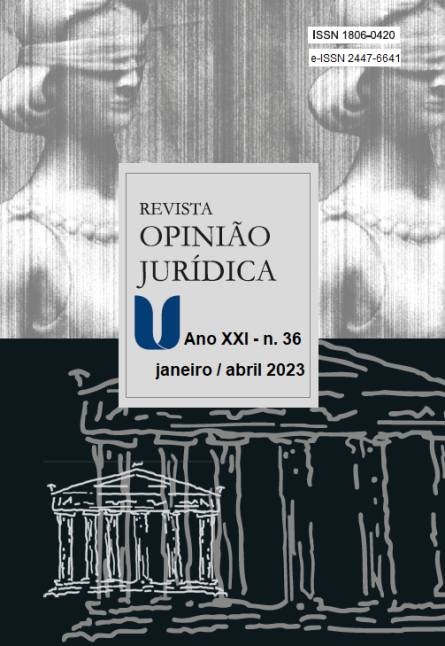PUBLIC DEFENDER'S ROLE IN ENVIRONMENTAL ARBITRATION
DOI:
https://doi.org/10.12662/2447-6641oj.v21i36.p117-147.2023Keywords:
arbitration, environment, hyposufficient, access to justice, Public defenseAbstract
Background: According to the doctrine and the National Council of Justice, the Judiciary is not the only way to access Justice, and today there is a system called multiport. In this perspective, in recent years, one of the institutes that has gained the most prominence is arbitration, involving the most diverse areas of law, justifying the analysis of its appropriateness in disputes related also to the environment, despite the consideration, in the first analysis, it is a diffuse and unavailable fundamental right. However, there are economic and material consequences of environmental damage, which can be dealt with by arbitration.
Objective: The objective of this article is to verify if it is possible and, if so, the possible contours of the Public Defender's Office in environmental arbitration in favor of the disadvantaged.
Method: The method adopted for the elaboration of this article was the hypothetical-deductive one, being the research, regarding the procedure, bibliographic and jurisprudential.
Results: The research concludes that the Public Defender's Office must act at all stages of the procedure, including before its election, providing an equalization of "weapons" in the legal and economic fields, as a result of the constitutional guarantee of full and free legal assistance to the poorest.
Published
How to Cite
Issue
Section
License
CESSION OF COPYRIGHTS
The submission of articles to analysis for publication on Opinião Jurídica implies the author(s) transfers copyrights to Centro Universitário Christus – UNICHRISTUS for reproduction, publicizing, distribution, printing and publication, according to the Publication Norm 414R, Opin. Jur., Fortaleza, year 12, n. 16, p.1-414, Jan./Dec. 2014, costs to be bore by UNICHRISTUS, in whatever format or means that may or shall exist, in accordance to articles 49 and following of Federal Law 9.610/98.
1. In ceding copyrights, the author(s) agrees to do so in exclusivity, free of charge and for the totality of the work.
2. UNICHRISTUS may make the work, in its entirety or in parts, available for scholarly purposes, without altering its contents, except for small corrections that are deemed necessary.
3. The cession of copyrights is valid in all countries and for versions of the material in its original language or translated into a foreign language.
RESPONSIBILITY FOR THE CONTENT
By submitting an article, the author(s) declare to have sole responsibility for the content of the piece and is(are), therefore, responsible for any judicial or extrajudicial measures referring to it.
1. In case of joint authorship, all authors are considered collectively responsible, except when proved otherwise.



















